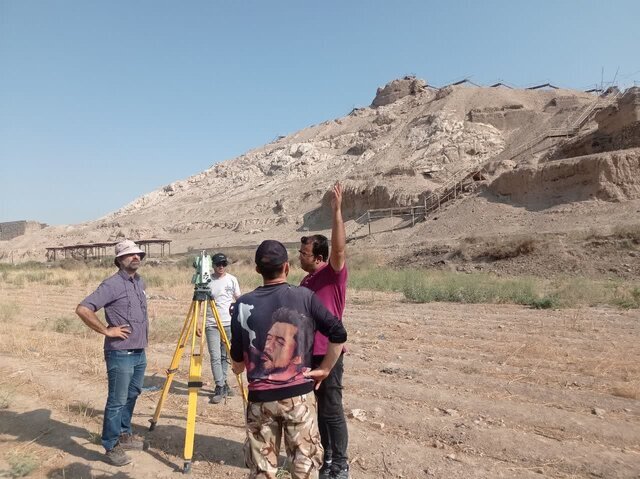Archaeological excavations to resume in ancient Rey after years of hiatus

TEHRAN – Two “important” archaeological excavations are due to begin in the ancient region of Rey after years of hiatus, according to the Director of Rey National Heritage Base, Qadir Afrovand.
On Monday, Afrovand described the upcoming excavations as “exciting,” noting the long gap in archaeological research in Rey, which boasts 8,000 years of history.
The Iranian archaeologist told ISNA that these excavations are among the most important and foundational initiatives of the Rey National Heritage Base.
The two simultaneous digs will take place at the historical Rashkan Fortress and Cheshmeh-Ali Mound, which are among the key cultural and civilizational sites of ancient Rey.
Scheduled to start tomorrow, the excavations are expected to continue until November 20. This marks the resumption of archaeological work at Rashkan Fortress after a 17-year hiatus and at Cheshmeh Ali after 25 years, the archaeologist explained.
Afrovand further explained that Shahid Beheshti University will lead the research at Cheshmeh Ali, while he will oversee the excavation at Rashkan Fortress.
Afrovand credited the collaborative efforts of the National and World Heritage Department of the Ministry of Cultural Heritage, Tourism and Handicrafts, the Tehran Provincial Cultural Heritage Office, and the Cultural Heritage and Tourism Research Institute for making the excavations possible.
He expressed optimism about the extensive scientific cooperation that will emerge from the involvement of Shahid Beheshti University, one of Iran’s most successful archaeological teams.
Cheshmeh-Ali is a historical and recreational spot located in the south of Tehran and north of Rey as the history of settlement in the latter goes down to the 3rd millennium BC.
According to Afrovand, Rey is one of the oldest cities in the central Iranian plateau with a history of human settlement that stretches over 8,000 years.
The history of Rey, according to the Encyclopedia Britannica is featured in the Avesta (the original document of Zoroastrianism, an Iranian religion) as a sacred place, and it is also mentioned in the book of Tobit, of the biblical Apocrypha, and by classical authors.
AM
Leave a Comment